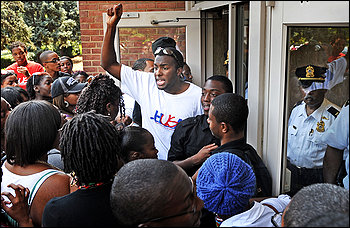Inside Higher Ed: Arbitrator Rules Against Prof Who Didn’t Want Extra Course
The University of Florida did not violate collective bargaining rules by requiring a professor to teach an additional course, an independent arbitrator has concluded. Florence Babb, an endowed professor and graduate coordinator of the university’s Center for Women’s Studies and Gender Research, challenged Florida’s decision to change her teaching load, saying her employment agreement stipulated that she would only be required to teach one course each semester. Given significant budget challenges, Florida officials increased Babb’s teaching requirements. Babb is now required to teach three courses over the spring and fall semesters, in addition to carrying out her duties as graduate coordinator for the women’s studies center. Ben Falcigno, an arbitrator who reviewed the case, based his decision on Babb’s 2004 appointment letter. The letter states that the “normal” course load for Babb would be two courses a year, but Falcigno concluded current budget constraints constitute “abnormal” conditions that allow the university to increase Babb’s teaching requirements. Babb was represented by the United Faculty of Florida, a statewide union affiliated with the National Education Association and the American Federation of Teachers. Pradeep Kumar, who represented Babb for the union, said the arbitration ruling is binding and won’t be appealed. Babb could not be reached for comment.

 Follow
Follow
More Drivel From the New York Times
howtheuniversityworks.com: More Drivel From the New York Times
Today the Grey Lady lent the op-ed page to yet another Columbia prof with the same old faux “analysis” of graduate education.
Why golly, the problem with the university is that there aren’t enough teaching positions out there to employ all of our excess doctorates Mark C. Taylor says: “Most graduate programs in American universities produce a product for which there is no market (candidates for teaching positions that do not exist).” Because there are just too many folks with Ph.D.’s out there, “there will always be too many candidates for too few openings.”
Comments Off on More Drivel From the New York Times
Posted in Commentary
Tagged Academics, adjuncts, Contingent labor, Job market, Working conditions